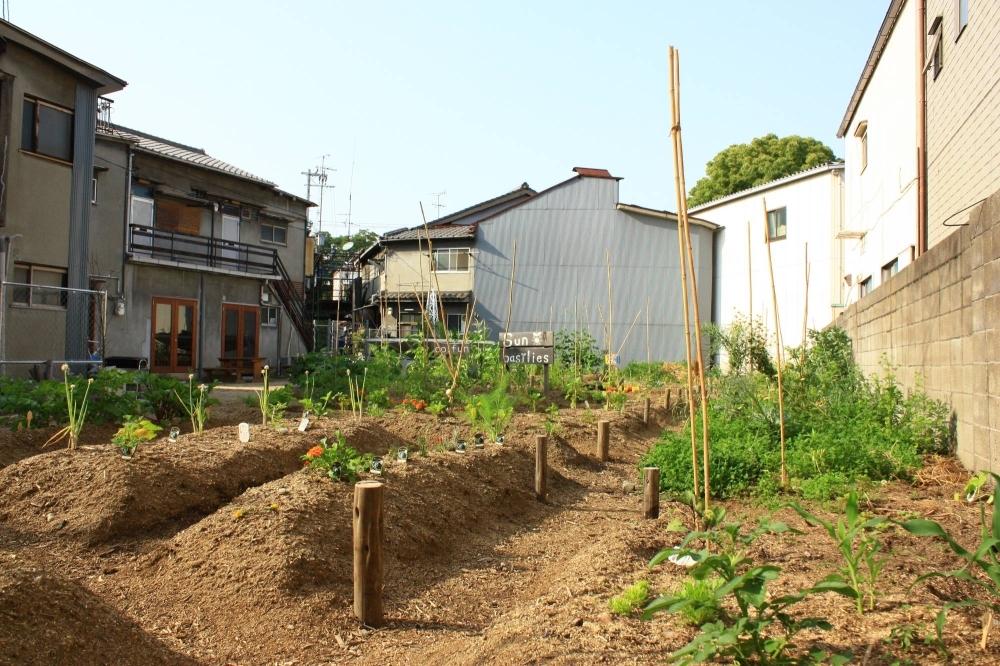In what the Manhattan Contrarian rightly labels “Comedy Gold,” a new climate fad is to signal one’s virtue by seeking psychological help to prevent a nervous breakdown over “the state known to the experts as ‘climate anxiety.’” And where would we be without experts? Some people, especially the young, really are getting panicked by the endless fearmongering. But it seems the latest badge of morality is to declare oneself debilitated with fear over the climate crisis. Which the mainstream media is happy to help with, like Maclean’s clickbaiting readers with “Is it ethical to have kids in the climate crisis?”
Maclean’s goes on to illustrate that it’s essentially a self-inflicted wound by kicking off the article with “Eco-anxiety is on the rise, particularly among those young enough to know that they – and their children – are heirs to a damaged and diminished world. In her arresting new book, Generation Dread, Britt Wray grapples with bringing new life to a crumbling planet.” A crumbling planet. Earth is crumbling. Who edits this stuff?
Nobody. Or the usual suspects. The Contrarian acknowledges that
“The New York Times, as usual, was way out front on this issue. Back in July 2021 they published a long piece by Molly Peterson with the headline ‘How to Calm Your Climate Anxiety.’ Subheadline: ‘Between wildfires, heat waves and hurricanes, we’re all feeling nervous about the future. But stewing or ignoring the problem won’t ease your burden.’”
As the Contrarian notes “if you are a writer for the New York Times you fully expect that among the readership it is accurate to say that ‘we’re all’ feeling the climate anxiety.” As you would, if you believed everything that paper prints.
Still, it’s not just the Grey Lady. As he also quotes that Times piece, “Evidence that climate change threatens mental health is mounting, according to a recent report from Imperial College London’s Institute of Global Health Innovation. Higher temperatures are tied to depressive language and higher suicide rates. Fires, hurricanes and heat waves carry the risk of trauma and depression…. Young people especially report feeling debilitated by climate anxiety and being frustrated by older generations.”
Now there’s a bit of a non sequitur here, since it’s not obvious that young people are more likely to experience fires or hurricanes. Especially not ones who live in advanced Western countries. Like “16-year-old Adah Crandall, a climate and anti-freeway activist in Portland, Oregon” who Peterson quotes that “I am scared for my future because of the inaction of adults in the past.” Talk about the herd of independent minds.
We will. How about the BBC reporting that “A new project has been launched to address rising climate anxiety in students at the University of East Anglia.” See,
“On Thursday a new survey found that 45% of UK students worry about climate change once a week or more. Literature student Meg Watts, 22, said that she had experienced depression after being overwhelmed by the scale of problems facing the planet. And she sought therapy after developing disordered eating when trying to cut out food packaged with plastic.”
And so people are leaping into their navels. “The project aims to address taboos around climate anxiety and give students the skills to manage their feelings.” Including a “climate café” that, one participant said, was a “safe and open space to just talk”.
The Contrarian also discusses this trendy phenomenon. His latest college reunion was meant to feature an expert in climate anxiety whose therapy involved things like regularly replacing air conditioning filters, composting and buying more fresh local food, which the Contrarian notes is a bit tricky where he lives, in Manhattan. And then “my personal favorite: Turning water off while brushing teeth can save 0.05 tons per year. That will really put those ChiComs in their place!” (A reference, in case you’re woke, to the Chinese Politburo plan massively to expand coal power while playing Western politicians with hollow pledges of climate action later.)
As Eric Worrall commented about this movement with more accuracy than charity, “Generation Z eco-worriers have broken the climate anxiety activist pipeline, by embracing the concept of ‘internal activism’ – believing in climate activism without actually doing anything.” For instance he quotes a Wired story “adapted from Generation Dread: Finding Purpose in an Age of Climate Crisis” by yes Britt Wray again, that
“it’s true that when we act on our values, we put our core beliefs about how we ought to be in the world into practice, which can bring relief. Narrowing that gap through activism is an effective way to feel more at ease. But climate-aware psychotherapist Caroline Hickman argues there’s a danger lurking in that sentiment. It’s a shortcut – a too-quick move from pain to action – and it threatens to leave people far less resilient and capable of facing the ecological crisis than they ought to be. It also supports the disenfranchisement of grief and mutes expressions of pain in favor of forward momentum.”
Obviously the café kids should save the planet in their spare time. Wray says “Don’t get me wrong – external action is absolutely vital…. But bromides like ‘action is the antidote to despair’ can oversimplify a complicated experience and indicate a society that is averse to difficult emotions.” Which might remind older readers of the passage in Jonathan Swift’s Gulliver’s Travels about how
“a fancy would sometimes take a Yahoo to retire into a corner, to lie down, and howl, and groan, and spurn away all that came near him, although he were young and fat, wanted neither food nor water, nor did the servant imagine what could possibly ail him. And the only remedy they found was, to set him to hard work, after which he would infallibly come to himself.”
Especially since, in a separate article on this comedy gold, Worrall quotes a Guardian article saying
“Brussels officials are being trained to meditate to help them tackle the climate crisis as part of a new wave of ‘applied mindfulness’ that seeks to take the Buddhism-inspired practice ‘off the cushion’ and into hard politics. EU officials working on the 27-country bloc’s green deal climate policy are attending ‘inner green deal’ courses intended to foster a deeper connection among decision-makers and negotiators tasked with tackling the crisis. The courses incorporate woodland walks near Brussels and meditation sessions, including one that invites participants to feel empathy for trees and animals to boost ‘environmental compassion’. Some managers have reportedly shown impatience at being asked to meditate and want to ‘get on with business’. But early results from the first 80 participants suggest the course has strengthened officials’ motivation to tackle climate problems and overcome personal despair that little can be done.”
And who wouldn’t feel better about self-induced climate anxiety paralysis knowing that in these troubled times their tax dollars are being spent to send six-figure bureaucrats away from their desks for soothing walks in the woods?
P.S. Maclean’s says yes you can maybe have one kid, even though “The sixth mass extinction, the ongoing annihilation of habitats and wildlife – whose populations have dropped by more than two-thirds since 1970 – is inextricably linked to human resource extraction.” See, after much existential doom and dread and tears, “Wray’s mindset changed as she researched, gleaning insights and advice from climate therapists, and full of admiration for the hard-won resilience of the historically marginalized.” (If you’re wondering how they got in there, clearly you’re not very woke.) Oddly, she doesn’t seem to have decided to do something practical about greenhouse gas emissions. Instead “I learned to get a grip on my own emotions and develop much more flexible thinking around my child-bearing dilemma.” Cool. It’s all about me. Save the navels!



'Climate change anxiety' & 'Depression caused by climate change' These 'disorders' occur in the gullible young who, unlike older people have not experienced doomsday predictions before & seen them fail, nor have they any experience of the more distant past to compare with the present. These young people swallow any story of doom that they are told, accepting its truth with blind faith. They need to learn to think critically & put the doom laden predictions they are fed to the test of real world data. I was struck while watching a young lady from 'Insulate Britain' being interviewed by Julia Hartley Brewer on Talk Radio. The aforementioned young lady was a complete nervous wreck & in such a state of anxiety that she was totally irrational & all she could do was repeat inane slogans which were simply nonsense. She has been fed this nonsense & she has accepted it because she is willing to be the victim of some deeply disturbed people. Perhaps she thinks that in accepting this misinformation she is told it makes her somehow morally superior. If so, her need for moral superiority is indicative of psychological issues in her & she needs to do some soul searching to find out why, then perhaps she may be a bit happier.
To get a better idea of what this is about, I recommend reading Eric Hoffer's book "The True Believer" where he explains how and why activists' dedication to their beliefs is more important to them than what those beliefs actually are. Such people cannot be swayed or have their fears allayed by evidence that climate change is not an existential threat, because that itself poses a threat to their dedication to activism which is the true drug.
As for young people who are not true believers, I hope they can learn to cope after acquiring some maturity the way I did regarding the (frankly more genuine) threat of annihilation through nuclear war, shake it off, and get on with their lives. And they don't have to rely, as I did, on the unsupported belief that human beings are not such complete idiots that they would actually use such weapons, there is real climate data to allay the fears of those who have the whit to pay attention to them.